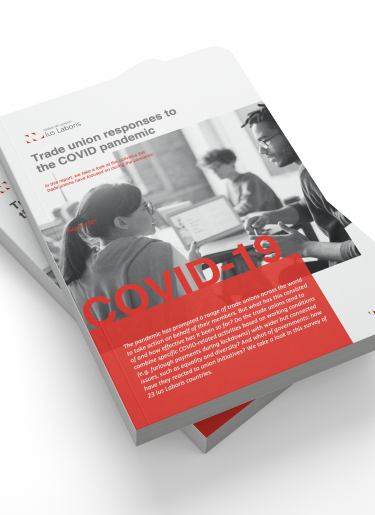
Our survey of 23 Ius Laboris countries reveals a number of different approaches by unions across jurisdictions, with some taking many new initiatives and helping drive broader changes, whilst others struggled to do the sorts of activities they would do in normal times. In terms of those that have been more expansive in their aims than simply focussing on the COVID-basics, it hasn’t all been plain sailing, as governments haven’t always responded unequivocally.
That said, union activism seems to be bearing fruit in certain legislatures, such as Canada, where various provincial governments have agreed to sick leave programmes and are sensing the pressure in terms of increasing tax on companies and high-earning individuals. And it seems that the focus of the unions on social justice is drawing the attention of potential new unions members and increasing their profile more generally.
In France, a heavily unionised country to start with, the initial response was surprisingly muted, but has picked up recently, particularly around the issue of teleworking. A ‘telestrike’ was even organised in which workers from home declared themselves on strike and deliberately did not connect their equipment.
In Germany, the unions have been particularly active, perhaps unsurprisingly, given their high profile in the country, making a range of demands including free COVID testing by employers, the inclusion of occupational doctors in the vaccination strategy and other health-related proposals. The unions are also tackling related issues, such as the burden placed on women as a result of the pandemic. They have also focussed on the environmental and social measures all businesses will need to put in place to address climate change and, in an innovative move which unions elsewhere might be interested to note – are calling for funds that were set up to deal with COVID to be continued for environmental purposes into the future.
Elsewhere, too, our data shows that unions are using the opportunity to broaden out their activities beyond the immediate need for financial support for workers during COVID and so, for example, in Austria, the Austrian Federation of Trade Unions has combined its COVID efforts with gender, issues affecting older employees and impacts on those especially affected by the pandemic.
In the UK, the unions have been markedly active, for example, taking a number of issues to court and running high-profile media campaigns to ensure the pandemic is not used as a pretext to reduce employees’ rights – though it has to be said that this has been met with a mixed response from government.
But not all unions have taken up the COVID challenge in an active way. For instance, in Belgium, the feeling is that the national unions have in some ways been less effective that in pre-pandemic times, in the main because of the ban on gatherings – despite there being some strikes. In Brazil, the unions seem to have failed to find an overall relevant role for themselves. In the Netherlands, although there has been moderate union activity, the issues that form part of the fall-out from COVID-19, such as gender and equal pay, are, if anything, getting less attention than usual.
Overall, our feeling is that even the unions that have struggled to find their feet during the pandemic will do so over the course of the next few months, as they play their part in ironing out how the working world should look in the longer term. It will not just be a matter of going back to the way it was before – the pandemic has gone on too long for that. There will be a plethora of issues to negotiate, for certain.
Dr Burkard Göpfert is a partner at Kliemt.HR Lawyers and Chair of the Ius Laboris Expert Group on Labour Relations.



